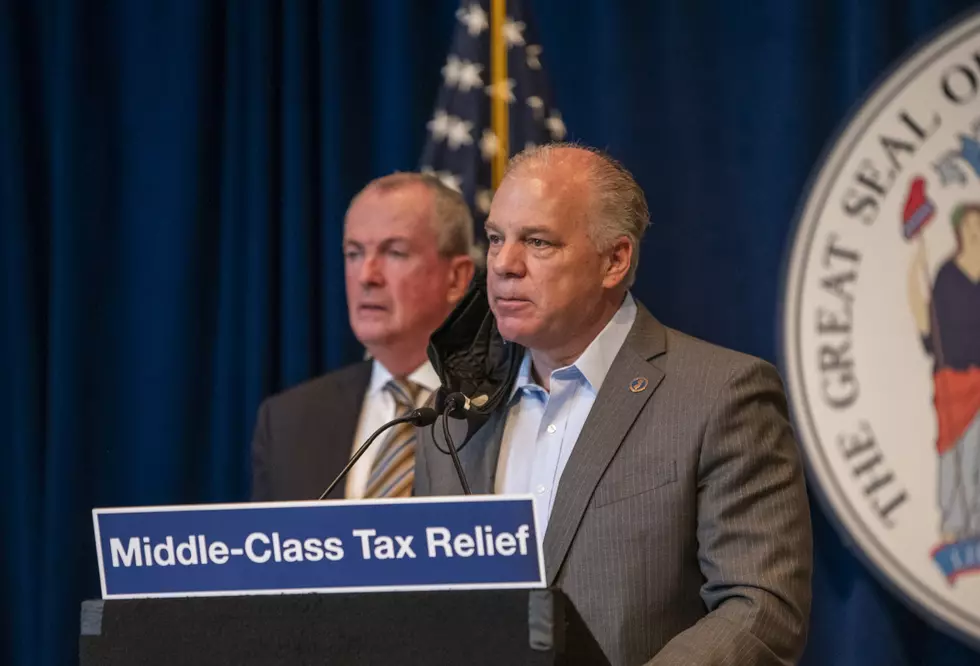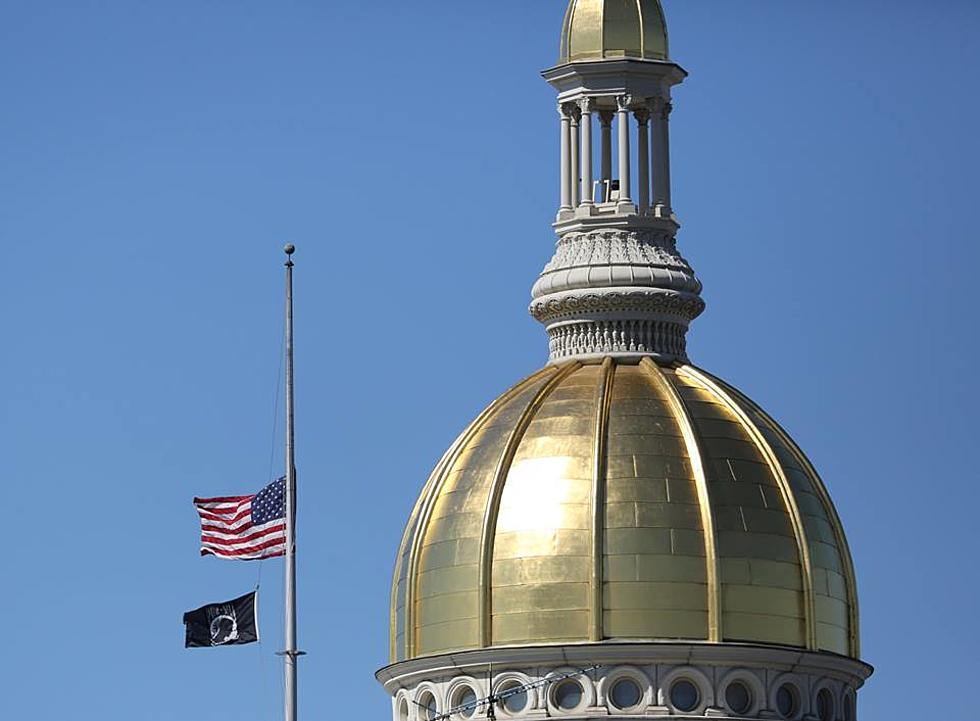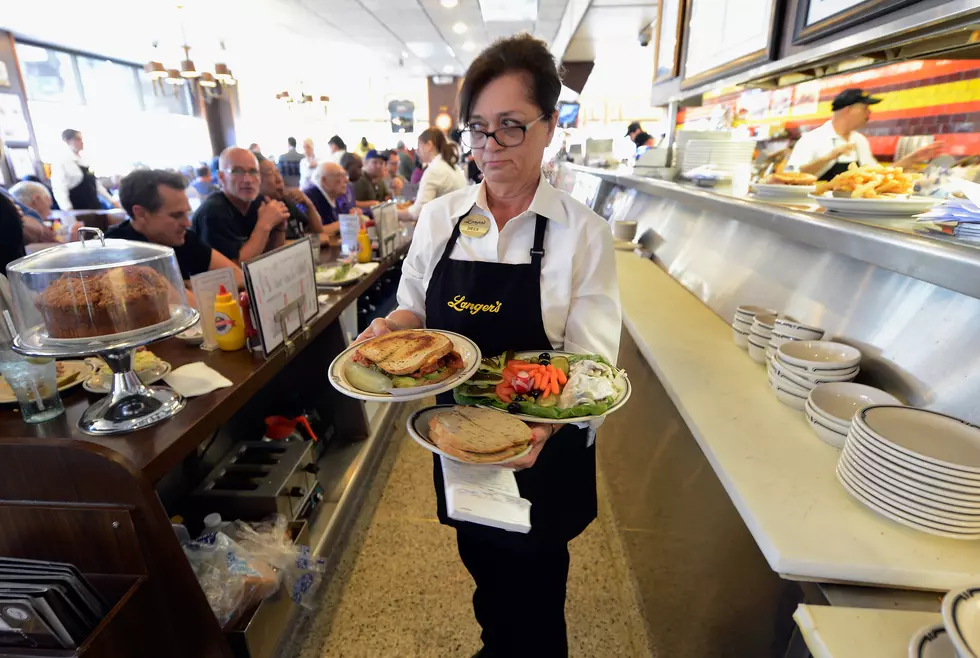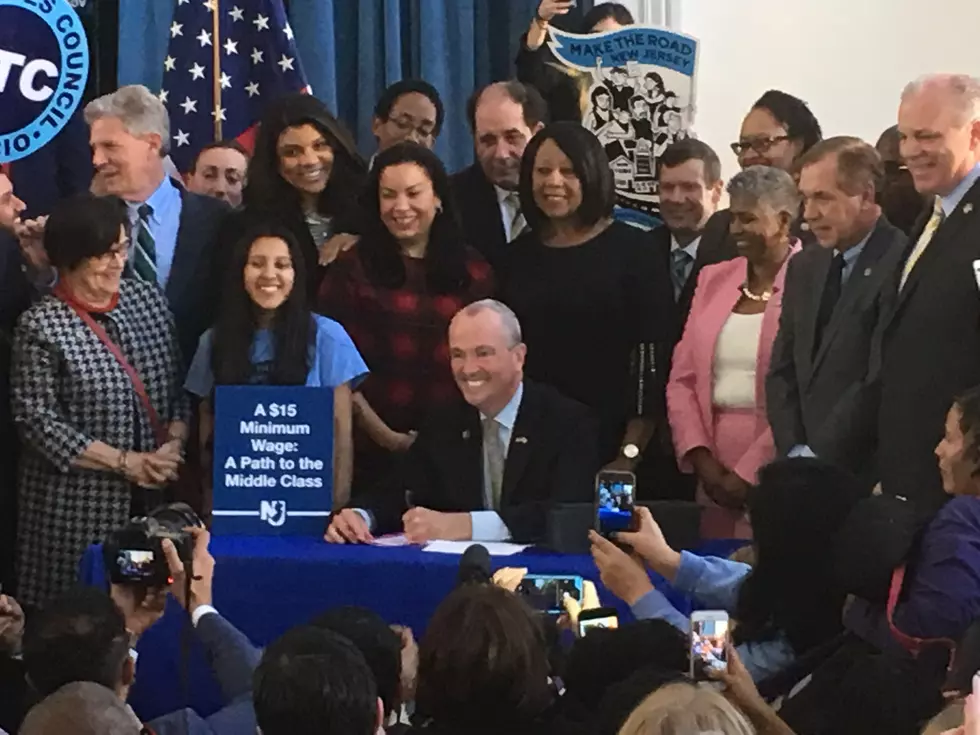
COVID-19 won’t stop NJ’s minimum wage from increasing on Jan. 1
It's a great boost for working New Jerseyans, although not universally welcomed by the companies that hire them.
When the calendar flips over to 2021, New Jersey's minimum wage will increase by $1, to $12 per hour, as part of a law signed in early 2019 that calls for yearly increases leading up to an eventual minimum wage of $15.
When urged by select lawmakers and groups to attempt to put this next increase on hold, at least until the pandemic subsides, Gov. Phil Murphy said that won't be happening.
"We're kind of caught between a rock and a hard place," Tom Bracken, president of the New Jersey Chamber of Commerce, told New Jersey 101.5. "We realize that there are a lot of people out there who are going through some difficult times, a $1 increase will help them dramatically. But at the same time, businesses are suffering dramatically and they're going to incur an increased expense."

The Chamber, along with the New Jersey Business & Industry Association, had pushed for the state's law to include an "economic offramp" so that a pending increase could be paused during an economic emergency, such as the current public health crisis.
"This would've been a perfect time to have an economic off-ramp," Bracken said.
Instead, he said, a number of businesses may be forced to make difficult moves — firings, reduced hours and cuts to benefits, for example — in order to make up for the added expense.
"You're going to have to find a way to probably overcome these costs, and none of the alternatives are very positive," Bracken said.
The law signed by Murphy last year calls for a $1 increase through 2024. After that, the minimum wage will continue to increase annually based on any increase in the Consumer Price Index.
When Murphy indicated that there are no plans to pause the automatic wage increase in 2021, he said he has plenty of sympathy for small businesses, but also "unending sympathy for folks who earn poverty wages."
New Jersey was one of 21 states that began 2020 with a higher minimum wage, either due to a previously approved law or because of cost-of-living increases, according to the National Conference of State Legislatures.
More From Townsquare Media News:
Gone for years: NJ's longest-missing people
More From 92.7 WOBM










